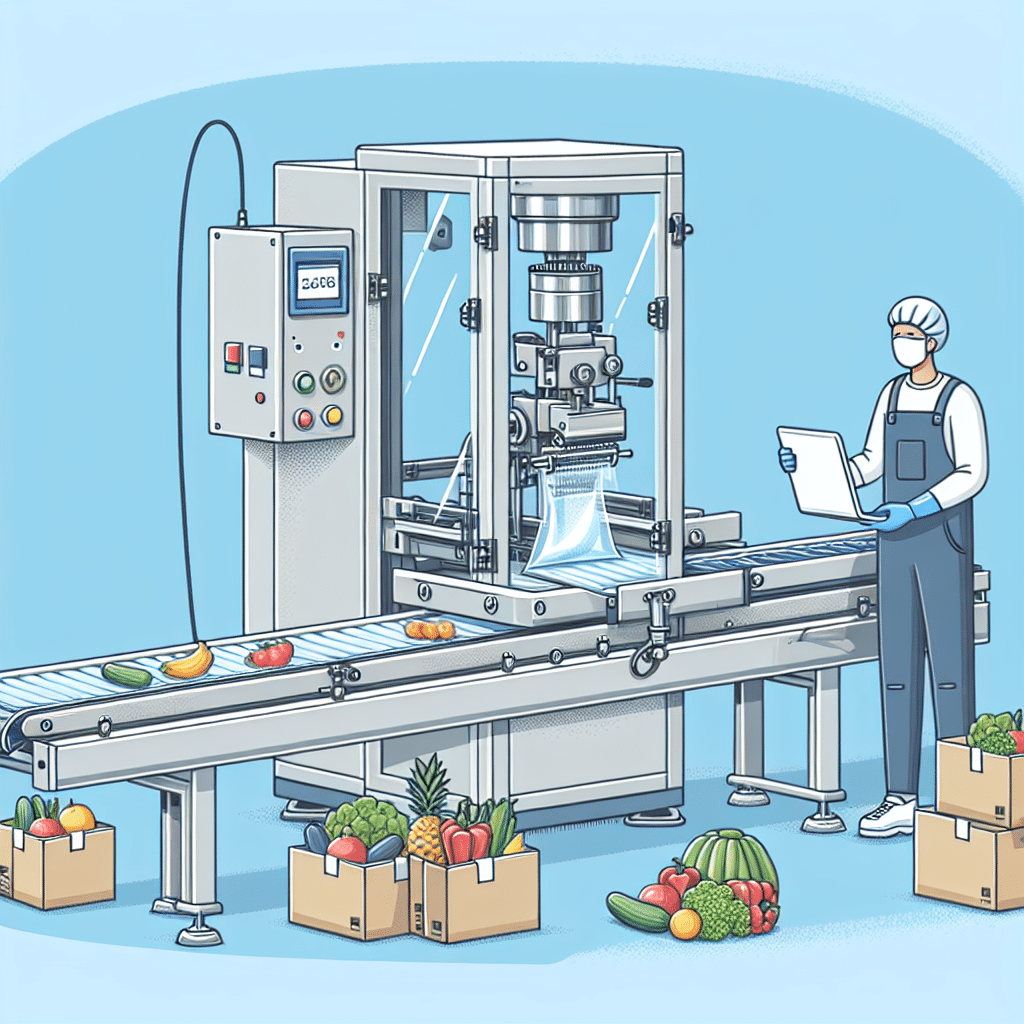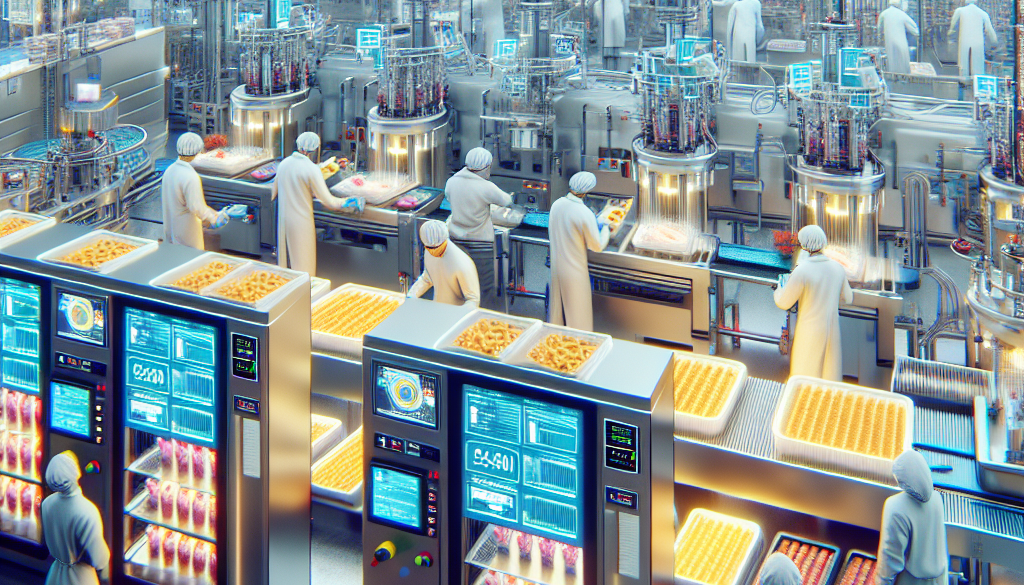The Appropriate Packaging Technology Assists In Guaranteeing Food Safety
-
Table of Contents
- Ensuring Food Safety with Advanced Packaging Technology
- The Importance of Packaging in Food Safety
- Advancements in Packaging Materials
- Barrier Properties and Shelf Life Extension
- Regulatory Compliance and Standards
- Consumer Convenience and Education
- Environmental Considerations
- Case Studies and Statistics
- Conclusion
- ETprotein: Your Partner in Food Safety and Quality
Ensuring Food Safety with Advanced Packaging Technology

Food safety is a paramount concern in the global food supply chain. With the increasing demand for longer shelf life and the need to maintain food quality, the role of packaging technology has become more crucial than ever. The right packaging not only protects food from external contaminants but also helps in preserving its nutritional value and extending its shelf life. In this article, we will explore how appropriate packaging technology is essential in guaranteeing food safety and the innovations that are making a difference in the industry.
The Importance of Packaging in Food Safety
Food packaging serves multiple purposes: it protects food products from environmental factors, physical damage, and contamination; provides consumers with information; and helps in the efficient distribution of products. However, its most critical role is in ensuring food safety. Packaging acts as a barrier between the food and potential sources of contamination, including microorganisms, chemicals, and physical contaminants.
Advancements in Packaging Materials
Recent advancements in packaging materials have significantly contributed to food safety. Innovations such as antimicrobial packaging, active packaging, and intelligent packaging are at the forefront of the industry.
- Antimicrobial Packaging: This type of packaging is designed to inhibit the growth of microorganisms that can spoil food or cause illness. It often incorporates substances like silver nanoparticles or organic acids that have antimicrobial properties.
- Active Packaging: Active packaging interacts with the food or the environment to extend shelf life and improve safety. It can include oxygen scavengers, moisture absorbers, or ethylene removers that help maintain the quality of the food.
- Intelligent Packaging: Intelligent packaging systems use sensors and indicators to monitor the condition of the food and provide real-time information about its freshness and safety. This can include time-temperature indicators or freshness sensors.
Barrier Properties and Shelf Life Extension
Packaging materials with excellent barrier properties are essential in preventing the transmission of moisture, gases, and volatile compounds. Materials such as glass, metals, and certain plastics provide a high barrier to contaminants and help in preserving the shelf life of food products. Modified atmosphere packaging (MAP) is another technology that alters the gaseous environment inside the package to slow down the deterioration of food and extend its shelf life.
Regulatory Compliance and Standards
Compliance with food safety standards and regulations is a critical aspect of food packaging. Packaging materials must be approved for food contact use and should not transfer harmful substances to the food. Regulatory bodies such as the U.S. Food and Drug Administration (FDA) and the European Food Safety Authority (EFSA) set guidelines for the safe use of packaging materials.
Consumer Convenience and Education
Appropriate packaging technology also includes features that enhance consumer convenience and education. Easy-open packages, resealable containers, and clear labeling that provides information on storage, preparation, and expiration dates all contribute to food safety by reducing the risk of mishandling and consumption of spoiled food.
Environmental Considerations
While ensuring food safety, it is also important to consider the environmental impact of packaging. Sustainable packaging solutions such as biodegradable materials, recyclable packaging, and reduced packaging waste are becoming increasingly important in the industry.
Case Studies and Statistics
Several case studies have demonstrated the effectiveness of advanced packaging technologies in enhancing food safety. For instance, the use of high-barrier packaging films has been shown to significantly reduce the spoilage of meat products. According to a study by the American Meat Science Association, packaging with high oxygen barrier properties can extend the shelf life of beef by up to 14 days.
Statistics also highlight the importance of packaging in reducing food waste. The Food and Agriculture Organization of the United Nations (FAO) reports that one-third of all food produced for human consumption is lost or wasted. Proper packaging can play a significant role in reducing this waste by protecting food from spoilage and extending its shelf life.
Conclusion
In conclusion, the appropriate packaging technology is vital in guaranteeing food safety. Advances in packaging materials, barrier properties, and intelligent systems are making significant contributions to the safety and longevity of food products. As the industry continues to evolve, it is essential to balance the need for food safety with environmental sustainability and consumer convenience. By doing so, we can ensure that the food reaching consumers’ tables is not only safe but also of the highest quality.
ETprotein: Your Partner in Food Safety and Quality
ETprotein company’s protein products are an excellent example of how high-quality ingredients can be safely packaged to ensure maximum safety and nutritional value. Their range of organic bulk vegan proteins and L-(+)-Ergothioneine (EGT) products are packaged with the utmost care, using technology that preserves their purity and efficacy. Whether you’re in the food and beverage industry or looking for dietary supplements, ETprotein offers reliable solutions that meet the highest standards of food safety.
About ETprotein:
ETprotein, a reputable protein and L-(+)-Ergothioneine (EGT) Chinese factory manufacturer and supplier, is renowned for producing, stocking, exporting, and delivering the highest quality organic bulk vegan proteins and L-(+)-Ergothioneine. They include Organic rice protein, clear rice protein, pea protein, clear pea protein, watermelon seed protein, pumpkin seed protein, sunflower seed protein, mung bean protein, peanut protein, and L-(+)-Ergothioneine EGT Pharmaceutical grade, L-(+)-Ergothioneine EGT food grade, L-(+)-Ergothioneine EGT cosmetic grade, L-(+)-Ergothioneine EGT reference grade and L-(+)-Ergothioneine EGT standard. Their offerings, characterized by a neutral taste, non-GMO, allergen-free attributes, with L-(+)-Ergothioneine purity over 98%, 99%, cater to a diverse range of industries. They serve nutraceutical, pharmaceutical, cosmeceutical, veterinary, as well as food and beverage finished product distributors, traders, and manufacturers across Europe, USA, Canada, Australia, Thailand, Japan, Korea, Brazil, and Chile, among others.
ETprotein specialization includes exporting and delivering tailor-made protein powder and finished nutritional supplements. Their extensive product range covers sectors like Food and Beverage, Sports Nutrition, Weight Management, Dietary Supplements, Health and Wellness Products, and Infant Formula, ensuring comprehensive solutions to meet all your protein needs.
As a trusted company by leading global food and beverage brands and Fortune 500 companies, ETprotein reinforces China’s reputation in the global arena. For more information or to sample their products, please contact them and email sales(at)ETprotein.com today.












